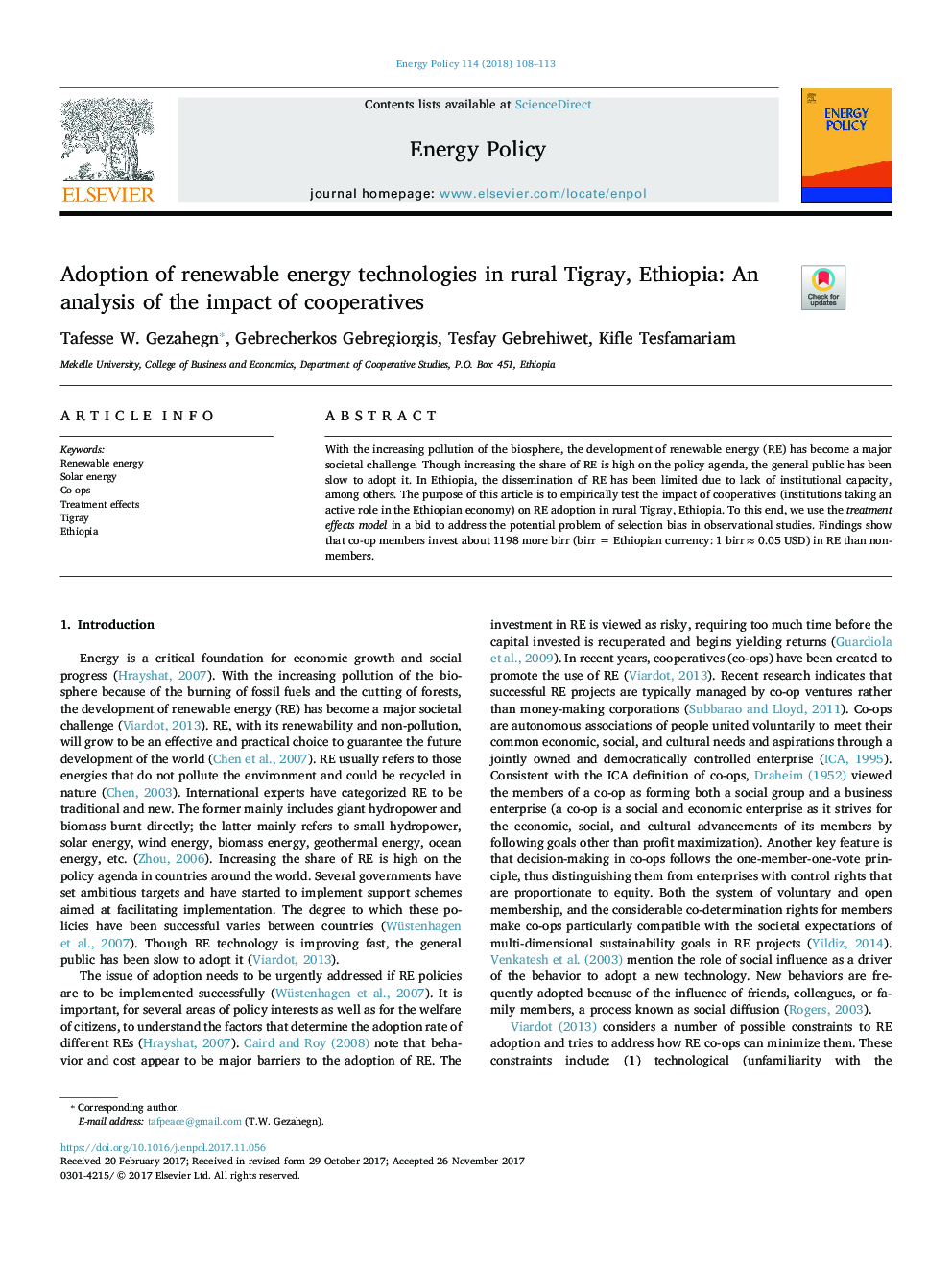| Article ID | Journal | Published Year | Pages | File Type |
|---|---|---|---|---|
| 7397630 | Energy Policy | 2018 | 6 Pages |
Abstract
With the increasing pollution of the biosphere, the development of renewable energy (RE) has become a major societal challenge. Though increasing the share of RE is high on the policy agenda, the general public has been slow to adopt it. In Ethiopia, the dissemination of RE has been limited due to lack of institutional capacity, among others. The purpose of this article is to empirically test the impact of cooperatives (institutions taking an active role in the Ethiopian economy) on RE adoption in rural Tigray, Ethiopia. To this end, we use the treatment effects model in a bid to address the potential problem of selection bias in observational studies. Findings show that co-op members invest about 1198 more birr (birr = Ethiopian currency: 1 birr â 0.05 USD) in RE than non-members.
Related Topics
Physical Sciences and Engineering
Energy
Energy Engineering and Power Technology
Authors
Tafesse W. Gezahegn, Gebrecherkos Gebregiorgis, Tesfay Gebrehiwet, Kifle Tesfamariam,
